Does Chai Tea Have Caffeine?
If you’re like me, you might turn to chai lattes as a refreshing, healthy, and zesty alternative to coffee.
Maybe you also turn to chai to decrease your caffeine intake. If this is the case, you definitely need to understand how the caffeine in chai tea compares to coffee.
In this guide, I’ll break down the ingredients and caffeine content of caffeine. Plus, I’ll touch on the drink’s history and potential benefits.
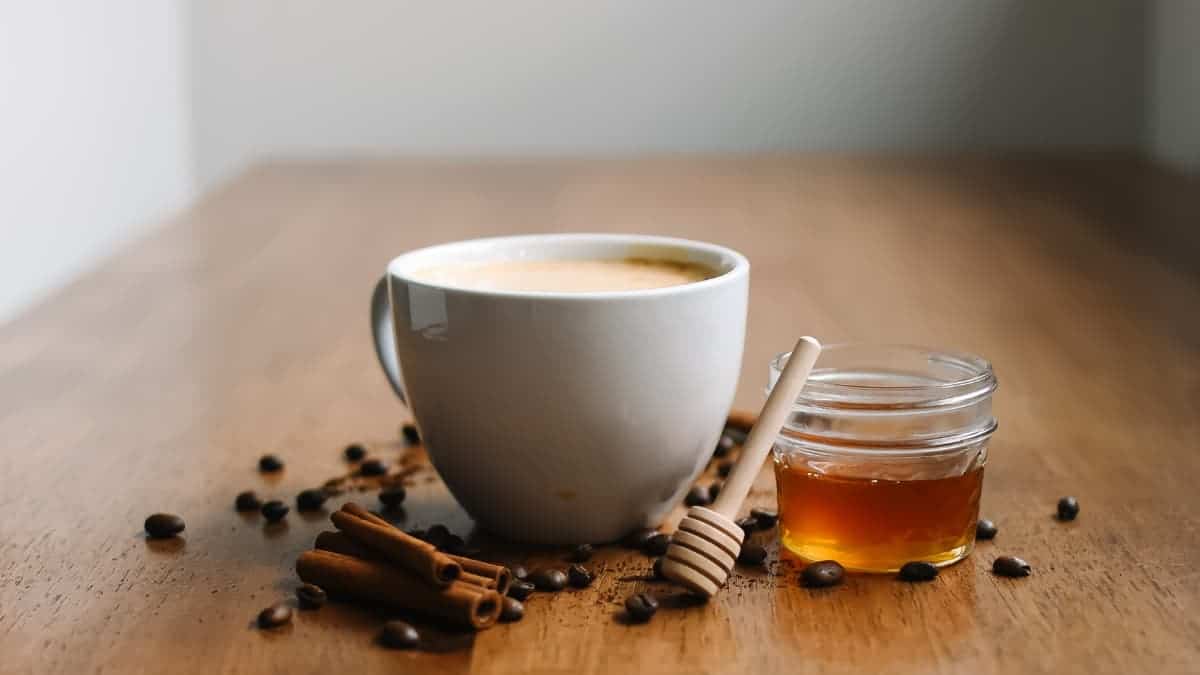
Key Takeaways: Chai Tea Caffeine Content
- Masala chai does contain caffeine.
- Several factors influence the amount of caffeine in chai.
- Chai teas may offer health benefits not found in coffee.
- Chai has less caffeine than coffee.
Does Chai Tea Contain Caffeine?
Yes! Chai tea does contain caffeine. However, there is less caffeine in a cup of chai than an espresso, or most other coffee drinks. (More on that in a bit.)
Caffeine is a natural substance occurring in many foods such as coffee beans and chocolate. The caffeine in chai comes from the black tea leaves used to make the drink.
A nervous system stimulant, caffeine can improve focus and energy levels.
But there are some negatives to caffeine. Some people note feelings of anxiety or stress after consumption. It may also upset your stomach or increase your heart rate.
The FDA recommends that healthy adults limit caffeine consumption to 400 mg per day.
Chai and other teas contain less caffeine than coffee. But what if you want to eliminate caffeine from your diet completely? I would suggest rooibos chai tea as a delicious caffeine-free alternative.
If you want to stick with black tea, decrease the amount of caffeine by switching to loose-leaf tea.
Why does this matter?
Caffeine is extracted at higher levels from crushed leaves in tea bags. By picking a loose-leaf tea, you lower the caffeine in your cup.
The amount of caffeine in your chai depends on a range of other factors as well. The steep time, water temperature, and ratio of water to tea can all impact the amount of caffeine.
If you want to turbo-charge your chai latte, make it a ‘dirty chai’ by adding a shot of espresso.
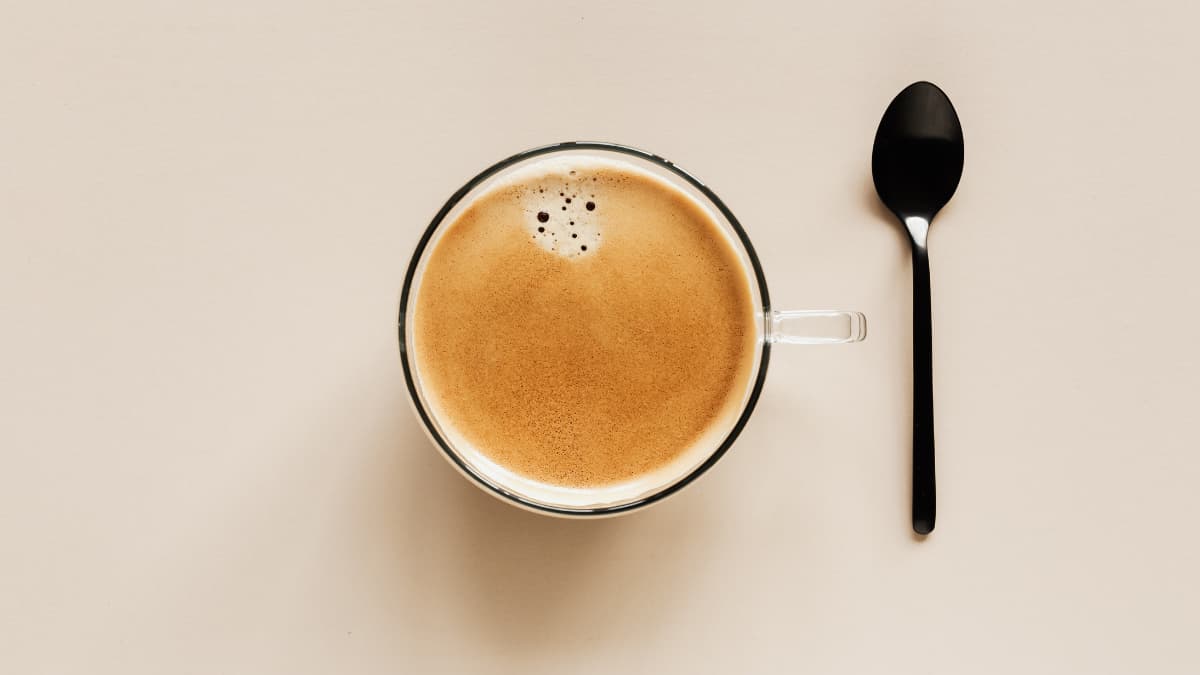
What Is Chai Tea?
Chai tea often refers to the Indian spiced masala black tea. Masala chai originated in India. It gained worldwide popularity during the period of British colonialism.
But the black tea was considered too expensive for domestic consumption. So, it was not until the 1900s that drinking chai tea became popularized across India.
The name is a bit redundant as ‘chai’ actually means ‘tea’ in Hindi. So, calling this drink chai tea is like saying “tea tea”.
Tea makers, called chai wallahs, prepare masala all around India. But many American coffee shops use a pre-made masala mixture as a chai tea concentrate or blend.
The mix of Indian spices that make up the masala chai is not always the same. In addition to black tea, chai often includes black pepper, star anise, honey, cloves, sugar, ginger, cardamom,
and cinnamon. The mixture of these spices gives the tea its signature herbal taste. (However, chai is not a herbal tea.)
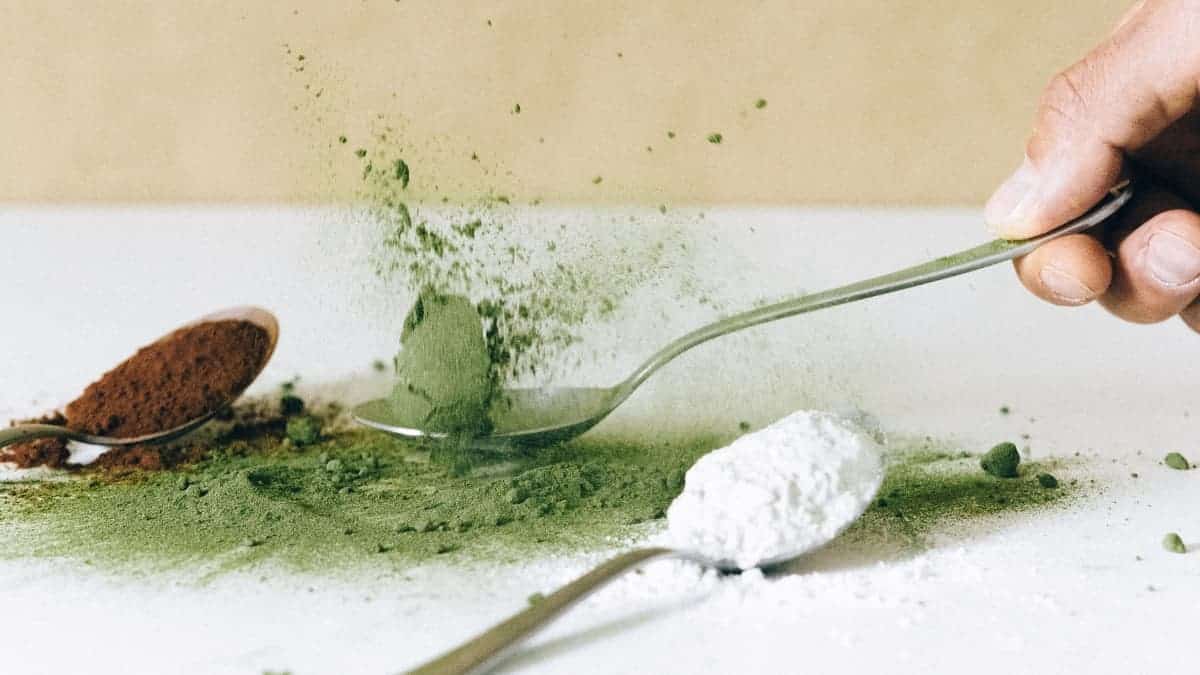
These spices not only taste great, but they may also contain a variety of health benefits.
For example, studies show that cinnamon may lower blood pressure. The spice might also reduce the threat of heart disease.
Chai is also full of beneficial antioxidants. Research suggests these may help reduce the effects of aging.
What Is a Chai Tea Latte?
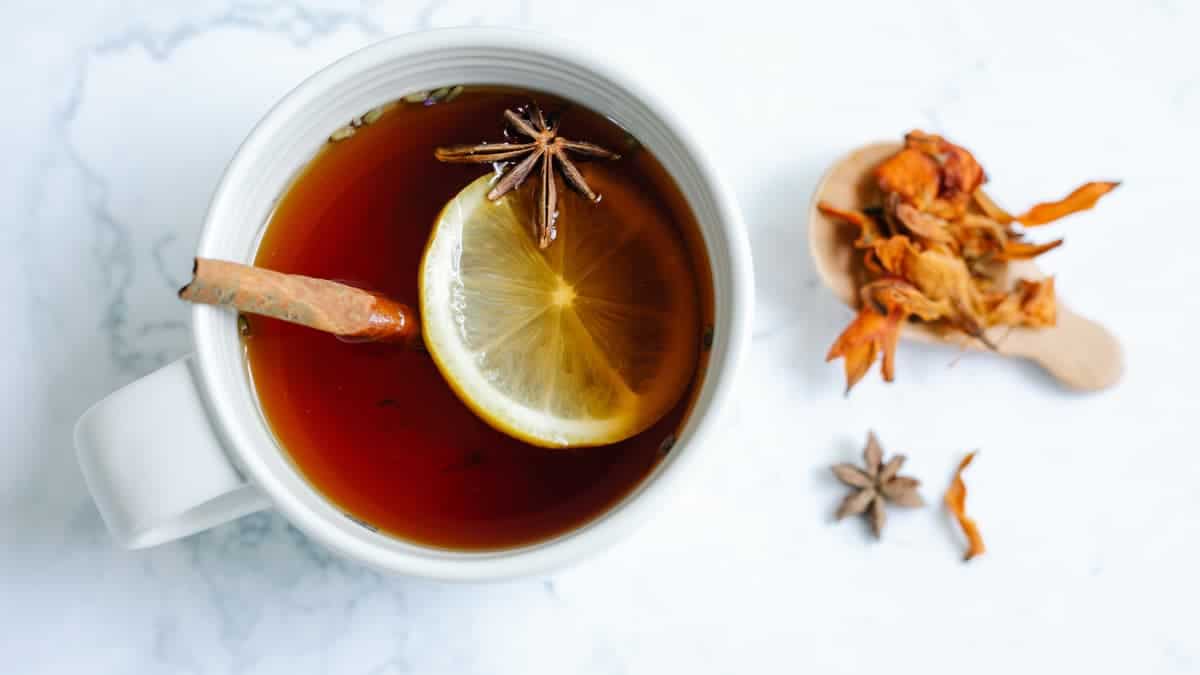
A chai tea latte is a chai tea with added warm milk. When you order a chai latte in a coffee shop, the drink typically comes with steamed milk.
Chai lattes contain the same amount of caffeine as regular chai. Adding milk to your chai will not affect caffeine levels. But it will add calories.
If you are a calorie-counting tea drinker, you might want to skip the chai lattes. Adding milk increases the total number of calories and sugar in your chai latte.
Most cafes have their own unique recipe. If you have health concerns, ask the barista about the ingredients. Some recipes include additives such as vanilla or other flavored syrups.
To decrease calories, you can substitute dairy for other kinds of milk. Oat milk gives chai lattes a delicious earthy depth.
Caffeine Content in Tea
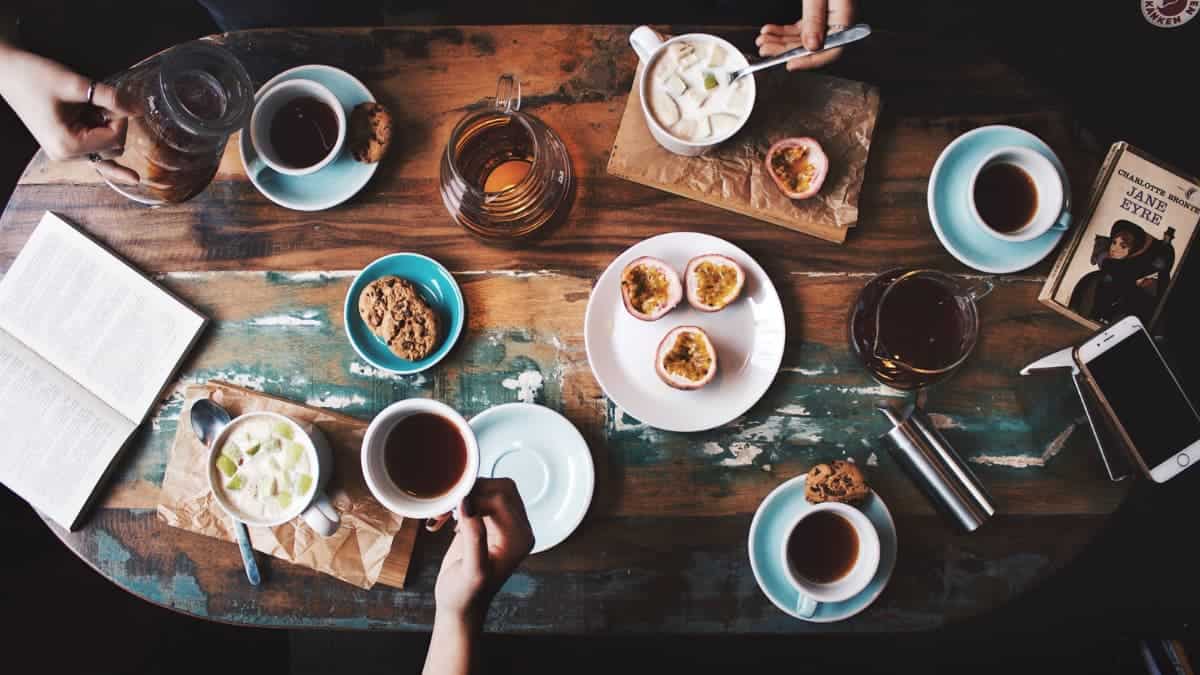
There is more caffeine in coffee than black tea. But how do black teas compare to other teas?
Out of all the different types of tea, black tea leaves contain the most caffeine. In an 8-ounce regular cup, there are around 26 milligrams of caffeine. But this number can be as high as 90 mg.
Green tea leaves come from the same plant as other teas, the Camellia sinensis plant. But there is a popular misconception that green tea has no caffeine. Generally, green teas have anywhere from 30 to 70 mg of caffeine. In other words, about half as much caffeine as black teas.
One of the more delicate tea varieties, white tea has even less caffeine. In an 8-ounce serving, there is typically anywhere from 15 to 30 mg of caffeine. About 15% less than in one cup of green tea.
On the other end of the caffeine spectrum, we have matcha tea. Made from powdered green tea leaves, matcha has much more caffeine than other teas. Including black.
Matcha contains roughly 25 to 130 mg, which may seem confusing since it comes from the same leaves as other teas. But matcha tea is brewed from a fine powder, increasing the caffeine extraction.
Iced tea also contains caffeine, and remember, the total caffeine content in tea depends on several factors.
If you want a caffeine-free brew, herbal and rooibos teas are the way to go
Caffeine in Chai Tea vs Coffee
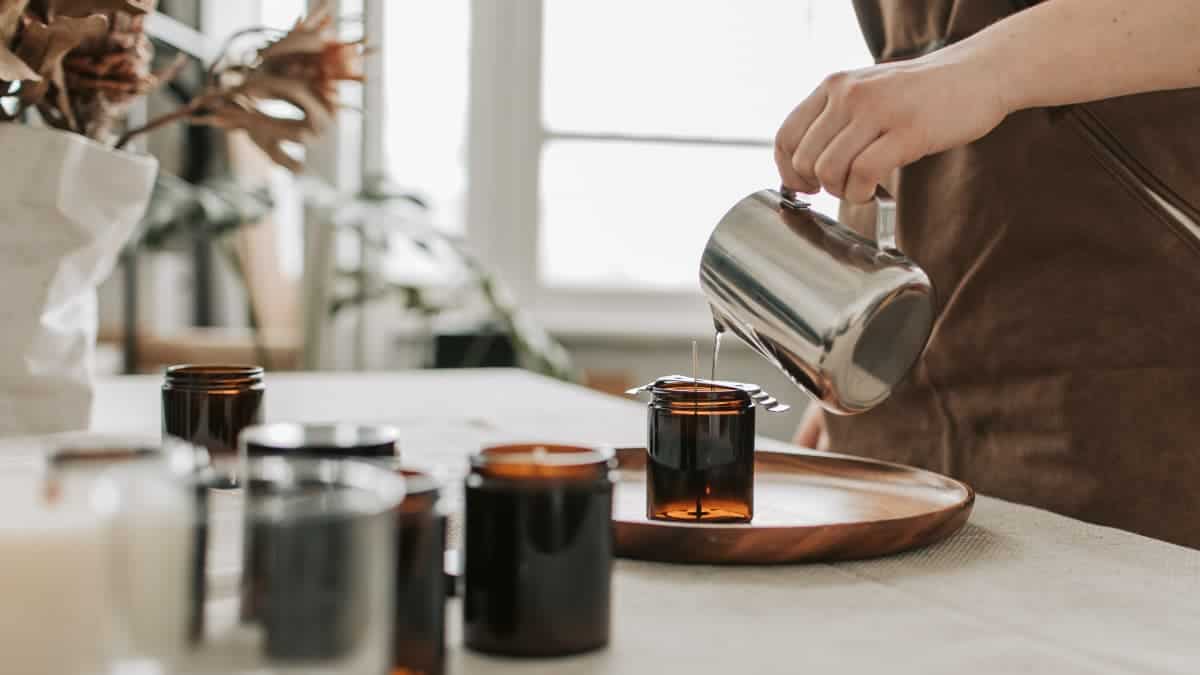
The amount of caffeine in a typical cup of chai tea will always be less than a regular cup of coffee.
An 8-ounce cup of black chai tea will contain roughly 42 mg of caffeine. An 8-ounce drip coffee will contain about 100 mg. And an espresso shot contains anywhere from 30 to 75 milligrams of caffeine.
Keep in mind that this is just a guideline. As with tea, several factors influence coffee caffeine levels. The brew method, roasting profile, and bean varietal will all come into play.
The more caffeine in your cup, the more bitter your drink might taste. Caffeine can also be addictive for certain individuals, especially at high consumption rates.
If you want to limit the post-beverage jitters, opt for a decaf coffee or chai. Just remember, decaf coffee still contains caffeine. Same goes for decaf chai (unless you replace black with rooibos tea).
Wrapping Up: Caffeine in Chai Tea
When it comes to caffeine, chai tea contains less than coffee. But masala chai is brewed with black tea leaves. So one 8-oz cup of chai still contains roughly 42 milligrams of caffeine.
All in all, chai is delicious and may boost your health. You can either enjoy drinking it iced during the summer months or hot when you feel the icy grasp of winter.
Nowadays, many coffee shops make this drink using a chai concentrate. But this spiced tea is most enjoyable when made from freshly ground ingredients.
(If you want lower caffeine levels, go for herbal teas.)

